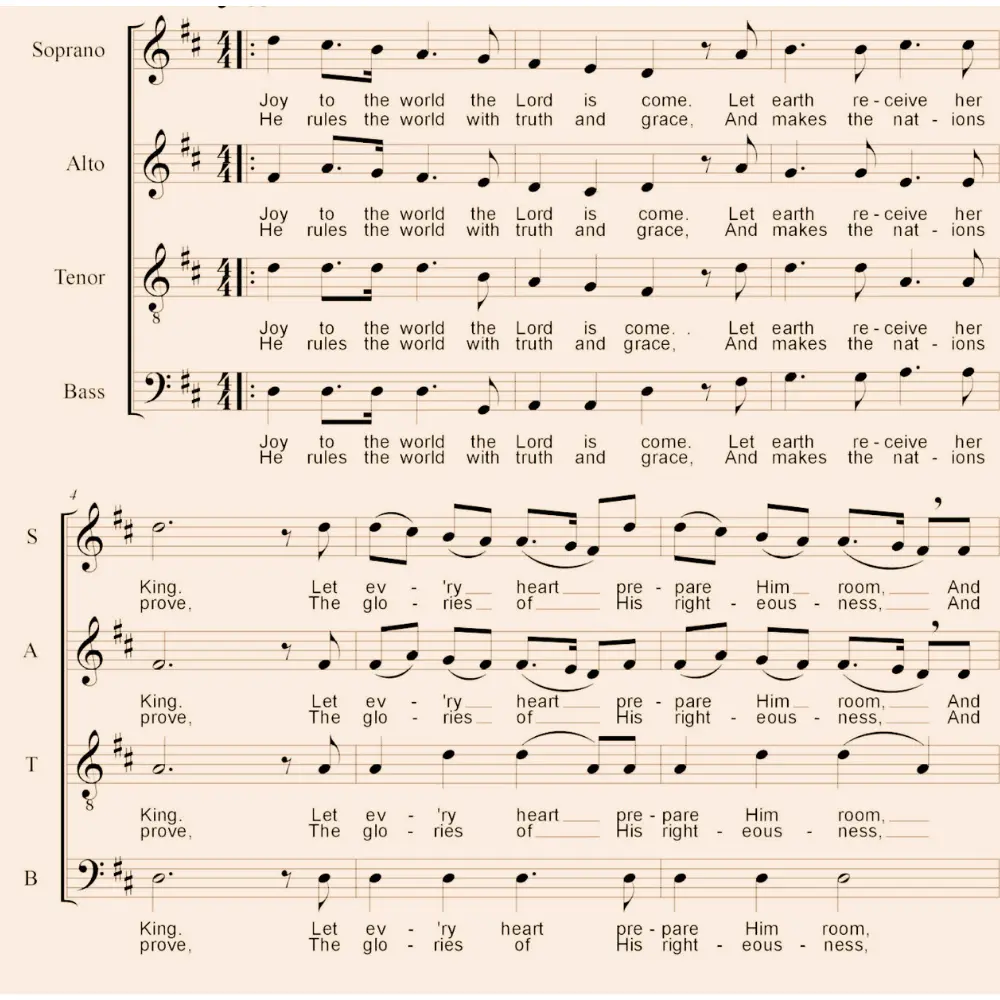I don’t think I have enjoyed anything more than singing in a choir. Choir Singing is so much fun, sharing musical notes, interesting repertoire and laughter and whatnot! A Choir Singing Songs or a choral music has different voice types blending their unique tones together and making wonders. I will take you through some essential Choral singing techniques and a few Choir singing tips that will help you grow.

When you’re in a choir, it’s about blending into how everyone else sounds.
Years and years ago, as soon as people heard the word ‘Choir Singing’, christian Sunday services and singing hymns immediately popped into their minds. It is a very happy phenomenon that did not stop there but has come a long way now.
What is Choir Singing?
In very simple words, it refers to a choir of singers coming together and performing a rehearsed or Choir Singing repertoire. Choirs usually consist of both men and women of all ages and different types of voices. Any number of singers can form a choir. It could have four or hundred singers. Generally, choirs perform in a variety of genres like classical, jazz, musicals, folk, blues, gospel nowadays.

The repertoires usually consist of chorale arrangements with SATB parts. So SATB expands to Soprano, alto, tenor and bass. You could find such interesting harmonies blending these voices together including a few choral singing techniques.
History of Choir Singing
The beginning of Choir Singing songs can be traced back to ancient Rome, Egypt and Greece. It was an important part of religious sermons, traditions and festivals, not to forget musical theaters. As it continued, more and more writing of many voices produced together called polyphonic sounds began getting the attention of the christian community. Check out the article about Solfege and how the basic concept of music was created from a Gregorian chant
The Renaissance era witnessed the development of choral music and Choir Singing, with so many compositions including motets, masses, and madrigals with distinguished harmonies.
Composers like Johann Sebastian Bach and George Frideric Handel contributed majorly in making the Choir Singing repertoires throughout the Baroque era. Choir Singing songs kept on spreading its wings in Classical and Romantic eras.
Composers such as Haydn, Mozart, Beethoven, and Brahms began experimenting with new choral singing techniques and concepts. The 19th and 20th centuries saw a global emergence of several styles and genres for Choir Singing as it continued to develop.
Do you want to learn to sing harmony? Go ahead and check this out to learn harmony for free, online.

Choir Singing Tips and Techniques
1. Listen and Sing!
The first and the most essential Choir Singing technique is remember to listen and blend. Listen and blend? Well, Choir Singing is groups of voices singing together. It is vital that you listen to one another and blend your voice accordingly.

Did You Know?
In a choir structure, one single voice should NOT be heard out, unless there is a solo.
2. Articulation to Blend
Articulation is one of the Choral Singing techniques used to communicate with clarity and precision. Understanding articulation can make different voice types blend together and communicate to the audience in a better way. You can also checkout my other article on Articulation in Singing for deeper understanding
3. Pitching
It is absolutely imperative that you have enough training on singing in pitch before taking on Choir Singing Songs . You must know the methods to precisely match the pitches. This is probably the first a choir conductor would look for when attempting a Choir Singing auditions. To enhance your pitching sense, sing scales, intervals, and melodies.
4. Phrasing for Good Delivery
The definition of Phrasing is grouping the words that make sense into a phrase. Phrasing in Choral Singing technique dictates choir of singers to where to take a break to breathe. This also makes the notes and rests make sense.
5. Breath Support
Choir Singing Songs requires proper breathing support. We think it’s okay to breathe anywhere and no one would know. It is not actually not true. One of the important techniques is nailing diaphragmatic breathing. To maintain steady airflow and sustain all the voices together, diaphragmatic breathing is a must.
6. Warm-Ups Drills
Before beginning practices or performance, always warm up your voice. Your voice should be warmed up to low and high notes so that you alone does not sound flat or sharp. This would ruin the beauty of the harmony. To loosen up your vocal chords, start with little scales, lip trills, sirens, and soft humming.
7. Develop Sight-Reading
Yet another fantastic tip is try to sight sing. To do that one must know the basics. Develop your sight-reading skills to sing a Choir singing songs you haven’t seen before. practicing scales and learning to sing musical intervals will help you recognise notes.
8. Keep Track of the Other Parts
Now this technique helped me alot. Be aware of your role in the chorus. It’s essential that you know your part in the repertoire, it’s also vital that you keep track of other parts to keep the other portions in balance, and to pay attention to how the harmonies go together.
9. Etiquettes to be Aware Of
Being respectful and polite to the choir conductor and always following their guidance and suggestions is just one of the best tips you will hear. Arrive on time for rehearsals with your music sheets of the repertoire and any necessary notes and pencils. Mark the correction so it’s easier for you to remember
Few Popular Choir Singing Repertoires
Here are a few Choir of Singers repertoire from different genres. Basically, these repertoires are well-liked for performances, since they are challenging to work on.
Musical Theater Performances
Western Classical Singing
Contemporary Singing

Did You Know?
It is believed that the heart rate of the singers in Choir sync up.
Jazz
Choir Singing Benefits
- You can gain self confidence while performing in front of an audience. Learning difficult musical compositions becomes not too challenging with everyone’s input.
- From my personal experience, taking part in Choir helps reduce your stress, anxiety, and depression while also elevating your mood.
- Choir benefits you with tons of opportunities for collaboration that will help you take off your career.
- One of the best Choir benefits is that you are pushed to come out of your comfort zone!
- Participating in choirs definitely helps you develop proper breath control, increase vocal range, attain pitch accuracy, and pick up choral Singing techniques.
- Under the supervision of a vocal coach who happens to be the choir conductor, regular rehearsals and performances lets you learn choral singing techniques.
Closing Thoughts
With all these tips, Keep in mind that participating in a choir requires teamwork. You need to pay attention to develop your particular abilities as well as how you can contribute to the group’s performance keeping in mind all the tips and techniques.
FAQs
What is the meaning of Choir Singing?
Choir Singing refers to a choir of singers coming together and performing a rehearsed or Choir Singing repertoire.
What advantages come with becoming a choir member?
Choir singing helps a singer gain confidence and learn so many singing techniques.
How can one distinguish between a chorus and a choir?
Choir is singers coming together singing choral music wherein chorus is a non formal choir of singers without a proper choir structure.
Which kinds of choirs are there?
Kinds of choir include mixed choir, youth choir, women choir, men choir, chamber choir, ensemble etc.
Where can I join a choir?
You should look for choir singing workshops and choir singing auditions around you and apply for it.
What are some pointers for improving your choir singing technique?
Concentrate on breath support, posture, voice techniques with warmup drills, pitching and articulation.




































